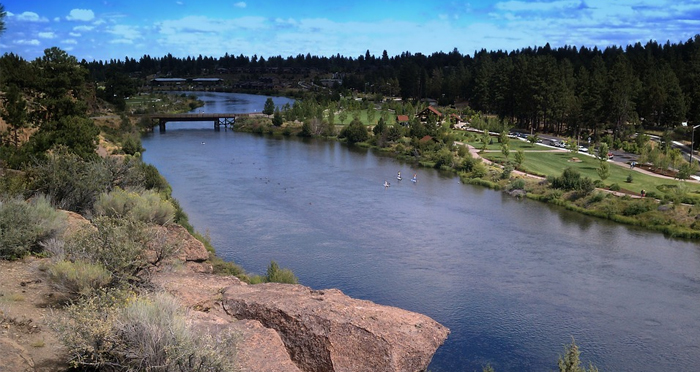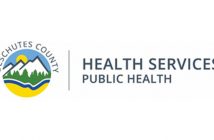Mayor Hails Great Recent Strides in Annual ‘State of the City’ Address
Mayor Casey Roats said Bend has “never been stronger” as he and City Manager Eric King addressed a packed house at the 10 Barrell 18th Street production facility event room for the annual State of the City address hosted by Bend Chamber of Commerce.
He lauded great strides made in recent history, in everything from implementing large-scale water and sewer infrastructure programs laying the groundwork for continuing population growth — estimated to hit 250,000 by 2065 — to road improvements, streets maintenance, economic diversification and collaborative efforts to provide more housing options, particularly in the affordable category which is seen as a widespread critical issue.
Roats said that he was particularly proud of the city’s councilors recent coming together with a broad consensus to approve some $60 million in funding for the Empire Blvd. and Murphy Road extensions, which would have city-wide transportation and development implications.
The need for these landmark projects, especially in terms of improving connectivity, has been identified for over 20 years and extending these routes is anticipated to reduce future emergency response times by over two minutes, while also opening up enough land for around 5,500 residents and 2,500 jobs.
Bend native Roats said the city has always experienced consistent growth and both residents and the city government should prioritize growing in “a controlled and thoughtful manner” rather than trying to pull up the drawbridge.
Though Bend undoubtedly was still growing at a good clip, it was not at the same “runaway” pace as the last, pre-recession, boom. As an illustration, he said the city issued some 938 single-family home permits in 2017 as opposed to over 2,500 in 2007. Current estimates peg Bend’s population at close to 87,000.
He added, “What gives me the greatest optimism about the future of our city and regarding the strength of the city is that I have seen our community come together in the last four or five years in ways that, in my lifetime before that, I hadn’t, because of the collaborative nature of people setting aside differences and working together.
“Bend is great for many reasons; among them that we have a world-class health care system and community college and we are developing a world-class four-year degree program institution in Oregon State University’s Cascades Campus.
“We have amazing parks, excellent local schools, and those are the types of things that are driving people to Bend, because they want the amenities that we have spent a long time and trouble investing in and developing ourselves as a community.”
King said continued creative efforts were needed to address transportation needs including $59 million in deferred maintenance requiring construction and $213 of capital projects needed to meet 20-year growth demands, according to 2011 estimates, all in the face of declining federal and state funding and limits to local property taxes. Systems Development Charges (SDC’s) were the largest local funding source as part of that equation, but they had “limitations.”
He said that as the city implements policies to accommodate inevitable continued growth, it was striving to craft a vision of “complete neighborhoods” incorporating homes, employment opportunities, retail and restaurant amenities, schools and parks in the same geographic area.
He commented, “A bad city plan is when you have all of your jobs in one area and all of your housing in another — which puts a lot of stress on your infrastructure.”





